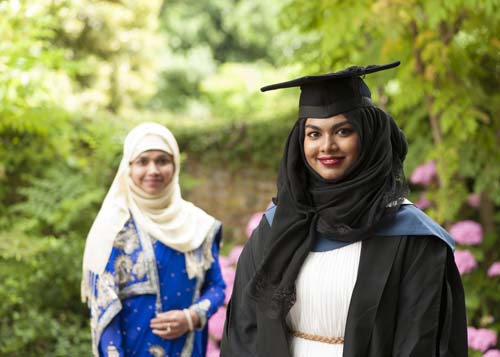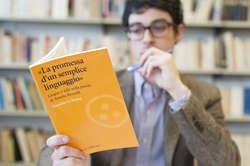 Easter’s coming up fast, and you’re probably still completing assignments for the end of term. Exams might still seem a long way off now but they’ll be here before you know it. It’s a good time to start thinking about your revision – and the Library and Study Advice are here to help.
Easter’s coming up fast, and you’re probably still completing assignments for the end of term. Exams might still seem a long way off now but they’ll be here before you know it. It’s a good time to start thinking about your revision – and the Library and Study Advice are here to help.
Working out a schedule
It’s important to have a plan, to make sure you have time to cover all the topics you need to. Avoid making your revision plan too detailed and prescriptive though – you will need to build in time for relaxation, exercise – and the unexpected!
The Study Advice guide on preparing for exams includes tips for planning your revision, including how to work out your revision schedule. You might also find our video tutorials on time management helpful – we have tips on planning and avoiding procrastination, for instance.
Finding materials for revision
You will probably start by reading through your lecture notes, and then looking at texts on your reading list. The Library has guidance on finding different types of publication as well as videos that will help you to get the most out of the Library.
You should also check the subject resources and guidance for information resources in your topic – much more reliable than ‘just Googling it’. And remember that, whether you’re revising on or off campus, our ebooks and ejournals are accessible 24/7.
Where will you revise?
It’s good to think about the place that you study best. Some students prefer to study at home or in Halls, and 24/7 access to e-resources makes this a viable option without taking mountains of books home. If you do this, make sure you make a schedule and stick to it – it’s easy to watch just one more episode of that box set!
Many students prefer to study in the Library, and study spaces will be available in the URS Building and the Library as usual. However it’s worth considering some of the other places to study on campus; being somewhere different may help you to avoid distractions. Or consider other places off-campus like public libraries. Going to a new place that you’ve identified as a ‘place to do revision’ can help you to focus.
Wherever you revise, remember to take breaks. Library@URS may be open 24 hours but that doesn’t mean you have to work through the night – your brain needs rest and time for processing information.
Making your revision effective
If you can find six minutes in your busy schedule, you have enough time to watch the Study Advice video tutorial on effective revision – and save yourself a lot of wasted time. Our guide on preparing for exams also has tips on revision and memory techniques. If you’re taking exams in the UK for the first time, have a look at our information on assessment by examination in UK higher education to give you a clearer idea of how they may differ from what you have done in the past.
 Remember that the purpose of revision is not to memorise everything you can find about the subject, but to prepare yourself to answer exam questions. Check the Past Paper archive on the Exams Office website to find examples of questions for your modules which you can use to write practice answers – to time and by hand, ideally. We have a Study Seminar on Writing for University Exams on Wed 20 March 2019, 2-3pm in Edith Morley G25 – no need to book. And have a look at our video tutorials on exams for guidance on the best way to prepare for different kinds of exams.
Remember that the purpose of revision is not to memorise everything you can find about the subject, but to prepare yourself to answer exam questions. Check the Past Paper archive on the Exams Office website to find examples of questions for your modules which you can use to write practice answers – to time and by hand, ideally. We have a Study Seminar on Writing for University Exams on Wed 20 March 2019, 2-3pm in Edith Morley G25 – no need to book. And have a look at our video tutorials on exams for guidance on the best way to prepare for different kinds of exams.
This is one of a series of tips to help you save time and effort finding or using information.
This tip was written by Kim Shahabudin, Michelle Reid, Sonia Hood and Linda Shroeder (Study Advice team).



 No matter how many essays you’ve written, working on a dissertation or research project can be overwhelming. They can involve lots of new skills from deciding on research questions through to those tricky final citations.
No matter how many essays you’ve written, working on a dissertation or research project can be overwhelming. They can involve lots of new skills from deciding on research questions through to those tricky final citations. Staying on track
Staying on track
 When you’re searching online for information for your assignments, you’ll find a wealth of information – but how do you know what you can trust? What’s reliable enough to be included in your academic work?
When you’re searching online for information for your assignments, you’ll find a wealth of information – but how do you know what you can trust? What’s reliable enough to be included in your academic work? If your resolution this term is to be more efficient when studying, a good area to focus on is your reading and note-making. Independent reading and taking notes are likely to make up a large part of your study time at university, so a few small adaptations to your reading strategies could potentially save you a lot of time over the term.
If your resolution this term is to be more efficient when studying, a good area to focus on is your reading and note-making. Independent reading and taking notes are likely to make up a large part of your study time at university, so a few small adaptations to your reading strategies could potentially save you a lot of time over the term. Note this!
Note this! If you’ve ever felt a little overwhelmed by the range of resources that the Library has on offer then you might want to get help from your very own subject Liaison Librarian or explore one of our dedicated subject guides.
If you’ve ever felt a little overwhelmed by the range of resources that the Library has on offer then you might want to get help from your very own subject Liaison Librarian or explore one of our dedicated subject guides. To access the guide for your subject just click on the “Explore key resources in your subject” in the ‘Help for your subject’ section of the Library website homepage, or go directly to our
To access the guide for your subject just click on the “Explore key resources in your subject” in the ‘Help for your subject’ section of the Library website homepage, or go directly to our  Do you struggle with referencing? Have you been marked down for incomplete or inconsistent references? There are some online tools that can help!
Do you struggle with referencing? Have you been marked down for incomplete or inconsistent references? There are some online tools that can help! It’s every student’s worst nightmare – you’ve finally found the perfect item for your assignment, only to discover that the Library doesn’t have it. But don’t despair! We’ve got lots of ways for you to get your hands on the information you need…
It’s every student’s worst nightmare – you’ve finally found the perfect item for your assignment, only to discover that the Library doesn’t have it. But don’t despair! We’ve got lots of ways for you to get your hands on the information you need…
 es have started, you might be wondering where to find materials for your new modules. Many lecturers use online reading lists to recommend books, journal articles, and other useful materials to read each week and to help you find materials for your assignments.
es have started, you might be wondering where to find materials for your new modules. Many lecturers use online reading lists to recommend books, journal articles, and other useful materials to read each week and to help you find materials for your assignments.

 You are also able to create an online reading lists account and make notes on items, or mark items as ‘Read’ – these notes and labels are only visible to you, and you can use these to manage and keep track of your readings.
You are also able to create an online reading lists account and make notes on items, or mark items as ‘Read’ – these notes and labels are only visible to you, and you can use these to manage and keep track of your readings.

 Your friendly
Your friendly  For international students, preparing for success in UK study means more than just learning the language. You will have many questions about the culture and expectations of universities in the UK, which can be quite different to what you have been used to. Even if you’ve been successful when studying in your home country, you will need to develop and adapt the way you study to succeed in the UK. We have plenty of suggestions that can help – and you can always get in touch with the
For international students, preparing for success in UK study means more than just learning the language. You will have many questions about the culture and expectations of universities in the UK, which can be quite different to what you have been used to. Even if you’ve been successful when studying in your home country, you will need to develop and adapt the way you study to succeed in the UK. We have plenty of suggestions that can help – and you can always get in touch with the 
 Whether you’re a new or an existing student, why not learn a language in the new academic year? The Library holds a variety of resources to help you learn languages, no matter what your level or preferred mode of study may be.
Whether you’re a new or an existing student, why not learn a language in the new academic year? The Library holds a variety of resources to help you learn languages, no matter what your level or preferred mode of study may be. Beyond the language
Beyond the language